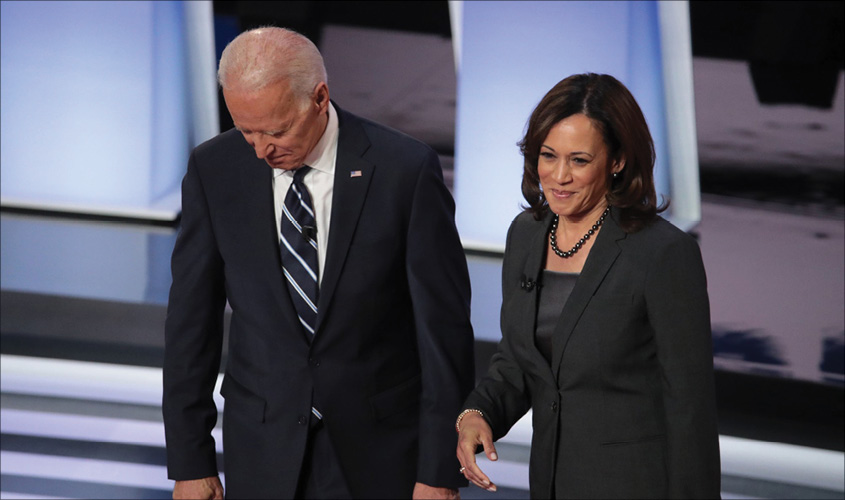Kamala Harris would better meet the needs of voters who have received the dirty end of the stick in the US economy.
Just as national elections in India matter to US policymakers, elections there—especially to the US Presidency, the House of Representatives and the Senate—are important for India, a country that three Prime Ministers and three US Presidents in succession have brought together into what may be described as an alliance that dare not speak its name, for fear of inviting blowback from the historically reliably pro-Soviet Congress Party and the Communist parties within India. Some countries on the outside would also be uneasy at a coming together of New Delhi and Washington, these principally being Moscow, Islamabad and Beijing. The European Union would prefer a continuation of the present predisposition of several
In the US, Joe Biden is on course to be the Democratic Party nominee for the 2020 US Presidential election. His opponent Bernie Sanders made the cardinal error of following the example of Jeremy Corbyn and embracing not mainstream Muslims but the Wahhabi fringe, choosing a Pakistan-centric individual as his Chief of Staff. The main goal of this individual was to earn brownie points with GHQ Rawalpindi by getting Sanders to release one toxic statement after the other about India. An Erdogan acolyte, Representative Ilhan Omar, went around the country as the lead campaigner for Sanders, ensuring that Biden gained substantially over Sanders wherever Omar spoke. But although he may have once again failed to win the Democratic Party nomination, Senator Sanders genuinely cares about the poor. His very presence in the field has moved the Democratic Party away from the camouflaged elitism of the Clinton machine, which for long dominated the party machine and which is now prodding Biden to anoint Senator Amy Klobuchar as his running mate rather than the feisty Kamala Harris, who would better meet the needs and aspirations of voters who have long received the dirty end of the stick so far as the US economy is concerned. The selection of Kamala Harris as his running mate by Biden would be an acknowledgement by the 74-year-old that he has truly imbibed the spirit of the revolution in politics (and in society) spearheaded by the rise to the Presidency of Barack Obama. A Biden-Harris ticket would pose a grave challenge to President Donald Trump and Vice-President Mike Pence. There has been talk that Trump may replace Pence with Nikki Haley, but this is unlikely. Vice-President Pence has shown his loyalty to a boss not easy to handle or to please, and has demonstrated skills in administration which have helped the overall image of the Trump Presidency. Not just that, but Pence has deep links with the religious establishment in the US that would be essential for Trump’s victory in the November polls. What is more likely is that the charismatic Haley will be made Secretary of State should Trump prevail over Biden, and perhaps become the Vice-Presidential candidate in 2024, should Mike Pence run that year for the job that brought Trump to the White House.
The challenge before President Trump is less Biden than it is the economy. If economic stabilization does not take place by the middle of 2020 and the effects of Covid-19 on the economy not get shaken off by August, the Republican ticket will face headwinds across the slateboard during the elections. Whoever wins in 2020, what is certain is that the US-India “closet alliance” will continue and be strengthened. Both sides need each other to ensure that the two biggest democracies continue to lead in matters of both security as well as the economy. US citizens who are more loyal to GHQ Rawalpindi than to American interests may not be happy about this, but the alliance of the world’s two biggest democracies is here to stay.

